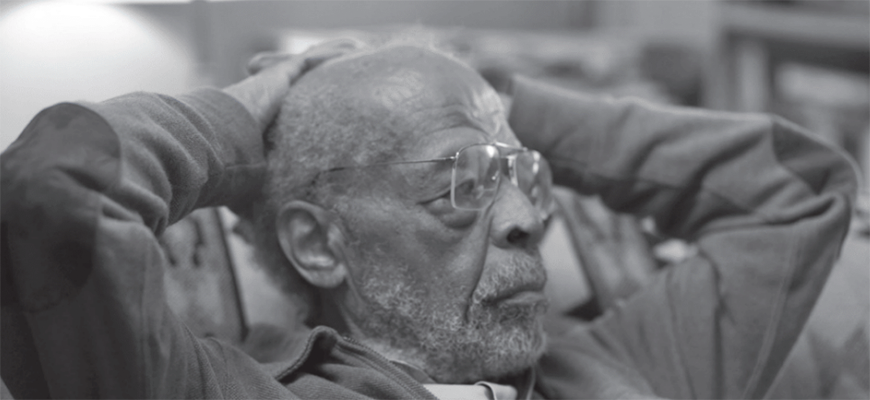The following is an advanced review of The Issue of Mr. O’Dell, playing DOXA Documentary Film Festival on Saturday, May 5 and Tuesday, May 8. More information here.
The Issue of Mr. O’Dell is that he was a member of the Communist Party. And unfortunately, at a time when the U.S. civil rights movement was focusing their intentions, having any affiliation with Communists was a distraction from the cause. White society would not see beyond the red. Jack O’Dell had to go.
In this short film by Rami Katz, O’Dell recounts his experiences with segregation, labour movements, the civil rights movement and publishing, leading up his insight on contemporary racial politics in the United States. O’Dell, now 94 and living in Vancouver, has never stopped giving speeches, writing and advocating for equal rights, both in law and in society.
Through O’Dell’s life story, his affiliations with different parties and movements, a larger picture appears: O’Dell has constantly searched for and aligned himself with whatever movement could beat racism. At one point in U.S. history, it meant joining the National Maritime Union. At another point, it was Communism. At another point, it was journalism and literary arts. At every moment in his life, O’Dell has shown what he refers to as an “eternal vigilance” against racism, and his vigilance endures today.
Most of the film is in black and white, using a standard documentary style that combines recent interview with archival footage and still photographs. The music is at times cheesy and generic, but the strength of the subject prevails. When the topic shifts to modern day, the documentary becomes colour.
O’Dell shares his thoughts on unchecked criminal behaviour by police and the disproportionate incarceration of African-Americans in the U.S. prison system, and groups like Black Lives Matter seeking to counter and dismantle the white privilege that has gotten us to this moment. O’Dell firmly believes, “Social action helps to bring progress,” but if only progress came quicker.
The Issue of Mr. O’Dell touches on a lot of different periods of O’Dell’s life, weaving his experiences into the grander history of African-Americans in the United States. While this strategy creates for a well-rounded, well-packaged documentary, the film feels at times surface and rushed. No one topic is explored to its full complexity. As a viewer, I was left wanting more.
But maybe that’s a good thing. There is a definite shift in racial politics happening right now. Having been reduced to a couple paragraphs on slavery and riots, or erased from history books altogether, the stories of African-American people in North America are finally being given the space they deserve. And we, as a society, are thirsty for it.


